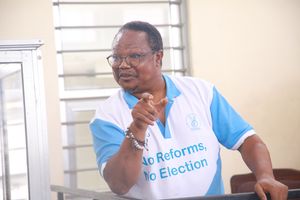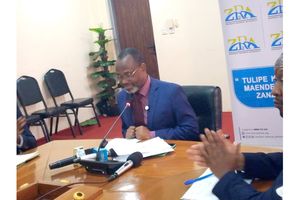EAC heads mull way forward on taxation, monetary union
What you need to know:
- The just-ended Heads of State Summit in Kampala, Uganda, noted that double taxation could be ruinous to regional trade and, as such, has to be avoided.
Arusha. Tanzania and Burundi have been directed to ratify the double taxation agreement of the East African Community (EAC) – and formally deposit the ratification instruments with the Community’s headquarters in Arusha, Tanzania, by July this year.
The just-ended Heads of State Summit in Kampala, Uganda, noted that double taxation could be ruinous to regional trade and, as such, has to be avoided.
In that regard – it was argued – a double taxation agreement would allow income generated in any of the six EAC member states of Kenya, Uganda, Tanzania, Rwanda, Burundi and South Sudan to be taxed only once.
The lack of such an agreement so far has given legitimacy for national revenue bodies to maintain the status quo, namely: taxing the same income/goods in two or more different countries.
The Kampala meeting also directed the EAC states to expedite establishment of the proposed Monetary Institute and allied institutions so as to lay the ground for the envisaged East African Monetary Union (Eamu).
It further called for the streamlining of the East African Development Bank’s activities into the main EAC structure after a thorough review of its charter. It was stressed that deliberate efforts must be made to promote the cotton, textile, apparel and leather industries “to make the region more competitive – and also create jobs.”
Priority should be given to the development of a competitive domestic textiles and leather sub-sectors that would provide affordable and quality products.
The EAC Council of Ministers – which is the policy organ of the Community – was directed to put in place mechanisms that support textiles and leather products manufacturing in the region.
The meeting further noted that, although there was some progress in ongoing efforts to reduce importation of used road motor vehicles from outside the regional integration bloc, the process should be speeded up.
No tangible decision was made on the proposed alternative financing mechanism aimed to bail out the cash-strapped EAC whose expenditure revenues have been hit by declining donor support – compounded by delays by the partner states to remit funds to it.
The communique issued at the end of the high-level talks which included the Joint Heads of State Retreat on Infrastructure and Health Financing and Development only said: “The summit received a report on the ongoing initiative of the Council (of Ministers) on a sustainable financing mechanism for the EAC.”
On the stalled negotiations for an Economic Partnership Agreement (EPA) between the EAC and the European Union, it was agreed that the bloc should continue to engage with the EU.
The chair of the Summit, President Museveni of Uganda was mandated to follow up on the matter – “and, in the event that an acceptable way forward is not reached, the Community shall explore the use of other options.”
The 19th Ordinary East African Community meeting was attended by presidents John Magufuli, Salvar Kiir of South Sudan, Uhuru Kenyatta (Kenya) and Uganda’s Yoweri Kaguta Museveni. In the event, the heads of state of Burundi and Rwanda were represented by their close aides.




